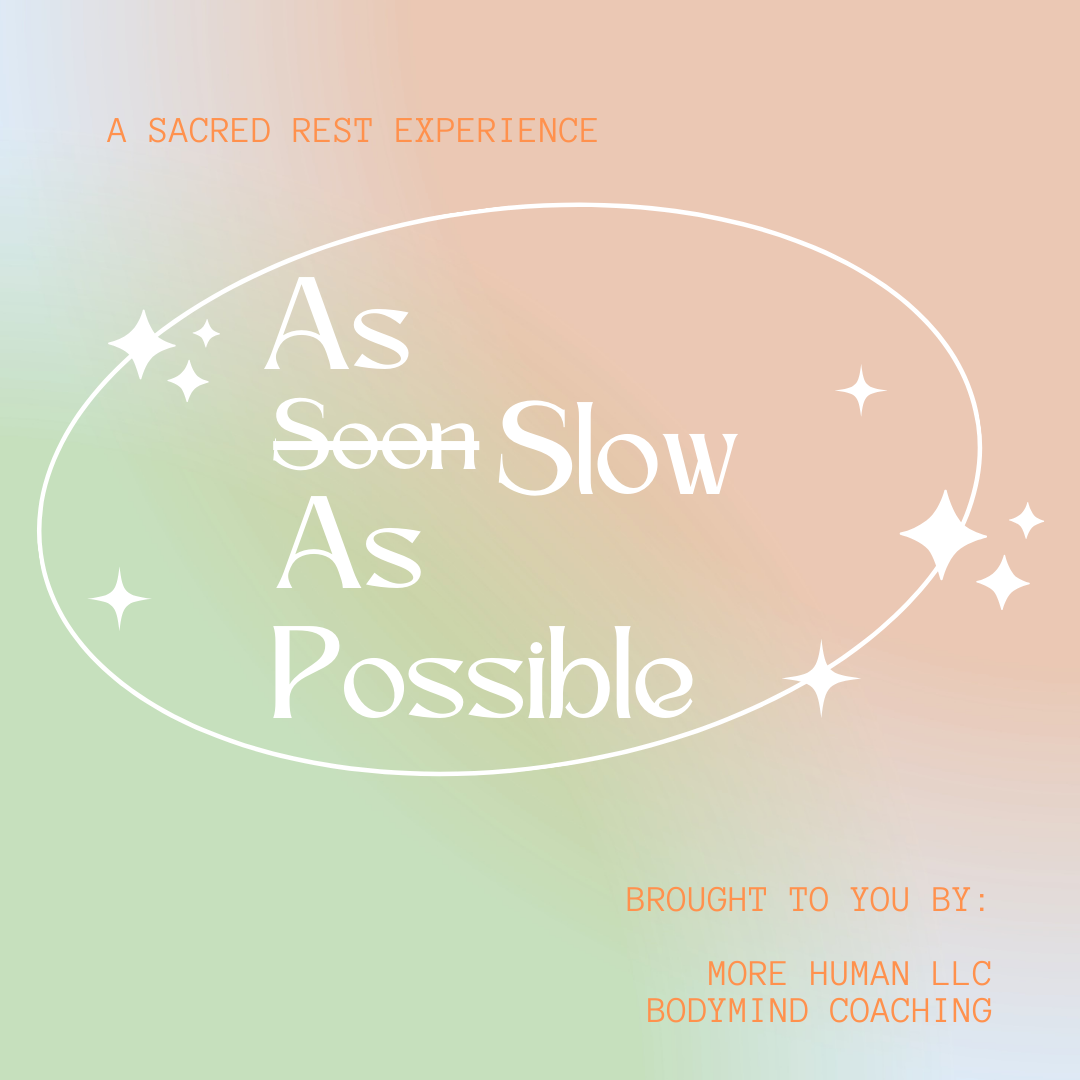What Is the Hurry About?
The new 2025 calendar in our house has prompted a lot of conversations about time.
My kids have been asking:
Why is it a new year now?
Will I still be in the same grade when I go back to school after winter break?
This has led to more wondering, about leap years, and why February is the shortest month, and why some months have 31 days and others only 30.
Our measurements of time can feel so strange and arbitrary.
As Americans, we are trained to move as quickly as possible.
My third grader told me he had five seconds to answer each question on a recent math test. It reminded me of the timed tests I also completed in elementary school, and the certificate of achievement I brought home—proof I was the fastest in the class.
I had been trained, even by third grade, that faster is better. I literally earned gold stars for going as fast as I could.
Our industrialized relationship to time taught me that we should always be hustling for more. And the “more” is infinite. It’s never enough.
This week, the siren song of the new year hustle is loud.
After deliberately resisting the holiday consumerist frenzy and carving out as much quiet and slowness as I could with my family over the break, the transition back to school and work and activities is jarring. I feel the pressure to maximize my productivity as I write out ambitious goals and to-do lists.
I find myself moving quickly, trying to get more done, defaulting to my old training.
Then I remembered a conversation I heard with Sara Hendren, an artist and design professor who is also a mother of a child with Down syndrome. She shares:
“Crip time” is this term of art in disability studies that I learned from other disability scholars. And it is that acknowledgment, the kind of slowness that comes with a lot of conditions — aging, but also maybe maneuvering with gear.
And again, making friends with that slowness and trying to ask ourselves, “Well, what is the hurry about? Do we want our lives subsumed by our economic worth?”
…None of this is to say that we don’t, in a realistic way, live in a time in which we work for money. Yes, I get it. But, the invitation is also to ask what are our lives about.
Reflecting on disability justice and “crip time,” I realize I have felt very separate from the concept of disability for most of my life, growing up as a dancer, athlete, and successful student. I was taught to measure my worth by what my mind and body could achieve.
But living through severe burnout, chronic illness, and the effects of complex trauma in my early 40s taught me that we are all temporarily “able-bodied,” to different degrees, on any given day.
When I couldn’t work, exercise, or engage with the world the way I was used to (rushing around and full of adrenaline), I was forced to question what my hurry was all about.
What was my economic worth when I could not work a full-time job while raising two children?
What was my worth when I couldn’t work at all, or on some days, even get out of bed?
What was my life all about then?
I was forced to learn slowness.
I was forced to learn how to live much of my life in a way that capitalism would deem economically “worthless.” I was forced to find my worth in something besides my productivity. I was forced to reject the inhumane pattern I inherited and find my way back to the inherent worth I was born with.
It was, and is, the hardest thing I have ever done.
I still have to be very deliberate about practicing slowness in my life. Especially when the wider culture keeps calling us to speed up.
Are you also asking what the hurry is all about? Is a part of you longing for something different?
I invite you to explore deliberate slowness with me in the new year at my upcoming community rest sessions.
NEW AFTERNOON TIMES:
Wednesday Community Rest Sessions at Leaven
Jan. 15, Jan. 22, and Jan. 29 from 3:00-4:30 pm
Sunday Community Rest Session at Leaven
Jan. 1/26 from 3:00-4:30 pm
As always, please contact me with any questions, suggestions, or ideas.
I hope to connect with you soon!
When we rest together, we heal and we thrive,
Stacy

